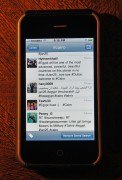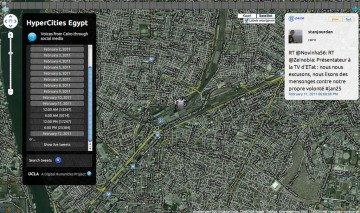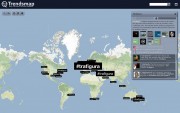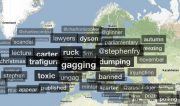20.02.2011 Der Architekt der chinesischen Mauer im Internet, Dr. Fang Binxing, sieht Handlungsbedarf: China mache es seinen Internetnutzern zu leicht die staatlichen Zensurbestimmungen zu umgehen. Das teilte Fang der chinesischen Global Times in einem Interview mit.
24 Hours of Mubarak on Twitter on Vimeo
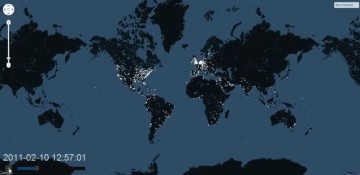
To tweet or not to tweet: How companies are reining in social media
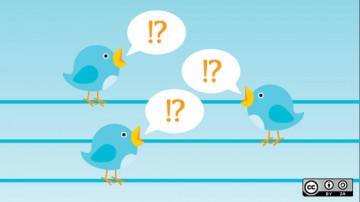
One tweet *can* change the world
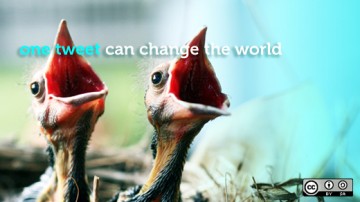
10.02.2011 American UN Ambassador Susan Rice gave an unprecedented livestreamed townhall at Twitter HQ today, “a very interesting and exciting day” due to the at the time impending speech of Egyptian president Hosni Mubarak. The talk was replete with questions from Twitter users and had its own hashtag #askambrice.
caribb – Flickr
- The App that’s Changing the World
- Historic Day
HyperCities Egypt
11.02.2011 Kurz vor dem Valentinstag laufen die Spam-Maschinen der Internet-Kriminellen auf Hochtouren. Seit einigen Tagen verzeichnet G Data daher einen sprunghaften Anstieg entsprechender Valentinstag-Spam.
robinhamman – Flickr
- Trafigura Trending on Twitter
- Trafigura goes global on twitter
- look who’s trending on twitter
Virales Online-Marketing
Wie aber erklärt sich der Erfolg solcher Viral-Marketing-Kampagnen?
Zum Ersten entlassen die Marketingabteilungen ihre Werbeviren gezielt in jene Kanäle, die die meisten von uns inzwischen zur alltäglichen Kommunikation verwenden: Facebook, Twitter und YouTube. Gerade Soziale Netzwerke bieten den idealen Nährboden, Werbebotschaften “viral”, wie Viren, innerhalb kürzester Zeit von einem Nutzer zum anderen zu übertragen.
Ein zweiter Grund für den Erfolg: Bei diesen Werbefilmen versagen herkömmliche Filtersysteme. Fraglich ist zudem, ob die Mehrheit der Internetnutzer die Videos ausblenden würde, selbst wenn sie es könnten. Denn die Kurzfilme werden drittens häufig auf Empfehlung von Freunden, Kollegen und Bekannten weitergeleitet, auch weil – last but not least – die jeweilige Produktempfehlung durch den humorvollen, erotischen oder einfach auch nur kreativen Inhalt subtil in den Hintergrund gerückt wird.
Tweeting tyrants out of Tunisia: the global Internet at its best
Tweeting tyrants out of Tunisia: the global Internet at its best
Even yesterday, it would have been too much to say that blogger, tweeters, Facebook users, Anonymous, and Wikileaks had "brought down" the Tunisian government, but with today’s news that the country’s president Zine El Abidine Ben Ali has fled the country, it becomes a more plausible claim to make.
Of course there was more to such demonstrations than some new technology. An individual act of desperation set off the last month of rioting, as a college-educated young man set himself on fire after police confiscated his unlicensed fruit and vegetable cart. Tunisia’s high unemployment rate, rampant corruption, and rising food prices added to the anger at Ben Ali’s 20+ year rule.
People risked their lives in the street, with some getting a bullet for their troubles, but the Internet played a significant role in organizing these protests and in disseminating news and pictures of them to the world.
Quelle: Tweeting tyrants out of Tunisia: the global Internet at its best

